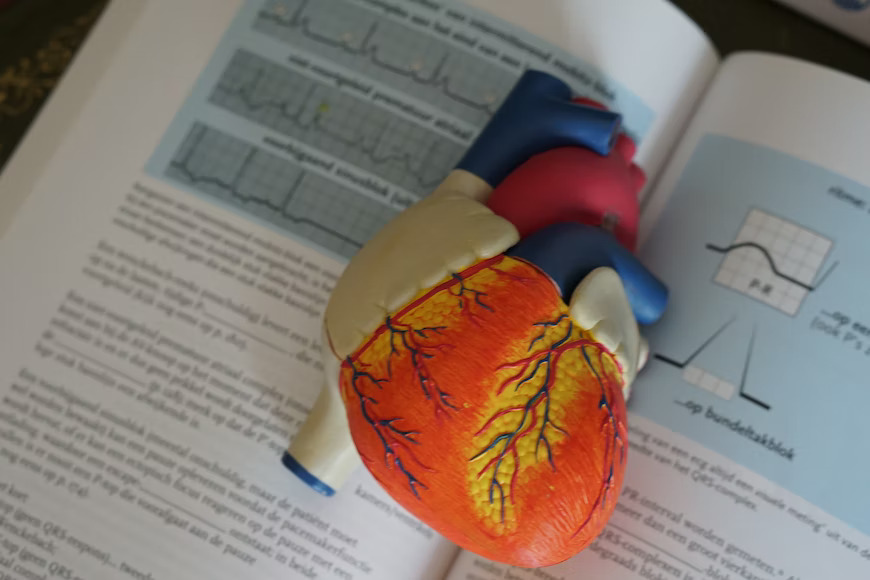Preventive Healthcare
Mitral Regurgitation - What It Is, Symptoms, Causes And Treatment
17658 Views
0

Mitral regurgitation is a relatively common heart valve condition in which the mitral valve doesn't close properly. This causes blood to leak backwards into the heart's left upper chamber (atrium). Mitral regurgitation can occur for several reasons, including damage to the valve leaflets from a heart attack, viral infection, or congenital (birth) defects. It can also be caused by prolapse of the mitral valve, where the valve leaflets bulge back into the atrium during heart contraction.
The symptoms of Mitral Regurgitation include heart palpitations, shortness of breath often accompanied by persistent coughing, fatigue, fluid retention and swelling in the legs, and chest pain. In this article, you will learn about Mitral Regurgitation - what it is, what causes it, and how it can be treated.
What Is Mitral Regurgitation?
Mitral regurgitation (MR) meaning is a condition in which blood leaks backwards through the mitral valve each time the heart contracts. The mitral valve is located between the left atrium and left ventricle and normally closes tightly to prevent blood from flowing backwards. When Mitral regurgitation occurs, the valve doesn’t close properly and blood leaks through it.
Mitral regurgitation can be mild, moderate, or severe, depending on how much blood
leaks through the valve. Mild Mitral regurgitation may not require treatment, but more severe MR can lead to heart failure and other complications.
There are two main types of Mitral regurgitation: primary MR and secondary MR.
- Primary Mitral regurgitation is usually caused by a congenital (present at birth) heart defect or by damage to the valve from a previous infection.
- Secondary Mitral regurgitation is most often caused by coronary artery disease, high blood pressure, or a heart attack.
If you think you may have Mitral regurgitation, see your doctor for an evaluation. Your doctor will likely perform a physical exam and order tests such as an echocardiogram (heart ultrasound) to confirm the diagnosis. Once diagnosed, treatment for MR depends on the severity of your condition. Mild cases of primary MR often don’t require treatment. More severe cases may be treated with medications.
Symptoms of Mitral Regurgitation
Mitral regurgitation, also called mitral insufficiency or mitral incompetence is a condition in which the mitral valve, which separates the left atrium from the left ventricle in the heart, doesn't close properly. This allows blood to flow backwards through the valve into the left atrium.
The most common symptom of mitral regurgitation is shortness of breath. Other symptoms may include: fatigue, coughing, wheezing, and difficulty exercising. In some cases, there may be no symptoms at all.
Mitral regurgitation can be caused by several conditions, including heart disease, infection, inflammation, and injury. It can also be caused by birth defects or certain medications. Treatment for mitral regurgitation depends on the underlying cause. Surgery may sometimes be necessary to repair or replace the valve.
Causes of Mitral Regurgitation
The Two Main Causes of MR Are:
- Diseases that affect the structure of the valve, such as prolapse (when the leaflets bulge back into the atrium during systole) or calcification (when calcium deposits build up on the valve leaflets).
- Diseases that affect the function of the valve, such as congestive heart failure or myocardial infarction (heart attack). In some cases, MR may be caused by a combination of both structural and functional abnormalities.
Diagnosis of Mitral Regurgitation:
There are many ways to diagnose mitral regurgitation, but the most common is through echocardiography. This ultrasound of the heart can provide your doctor with a clear look at the structure and function of your heart, as well as any abnormal blood flow. Other diagnostic tests may include cardiac MRI, cardiac catheterization, or chest x-ray.
Complications of Mitral Regurgitation:
There are several potential complications associated with mitral regurgitation, including heart failure, stroke, and chronic lung disease. In some cases, the condition can also lead to death. Heart failure is the most common complication of mitral regurgitation. When the heart is unable to pump enough blood to meet the body's needs, fluid can build up in the lungs, causing shortness of breath and fatigue.
In severe cases, heart failure can be fatal. Stroke is another potential complication of mitral regurgitation. When the heart isn't pumping properly, blood can back up into the brain, causing a stroke. Chronic lung disease can also develop as a result of mitral regurgitation. If you have mitral regurgitation, it's important to see your doctor regularly and follow their recommended treatment plan. With proper treatment, most people with mitral regurgitation live long and healthy lives.
Treatment of Mitral Regurgitation
Mitral regurgitation (MR) is when the mitral valve doesn’t close properly. This causes blood to leak backward into the heart. MR can be mild, moderate, or severe.
Mild MR may not require treatment. But if it gets worse, you may need surgery to repair or replace the valve. The goal of treatment is to relieve symptoms and prevent complications.
Treatment Options Include:
Medicines: These can help reduce the amount of work your heart has to do. They include diuretics, ACE inhibitors, beta-blockers, and others.
Surgery: If medicines don’t work or your MR is severe, you may need surgery to repair or replace the valve. The type of surgery will depend on your age, overall health, and preferences.
Monitoring: Even if you don’t have symptoms, your doctor will likely want to check on you regularly. This is because MR can get worse over time.
Conclusion
Mitral regurgitation is a common heart condition that can have a significant impact on your quality of life. It is important to be aware of the symptoms and seek medical treatment if you think you may be affected. With proper diagnosis and treatment, many people with mitral regurgitation can live normal, healthy lives.













1701259759.webp)





















 WhatsApp
WhatsApp